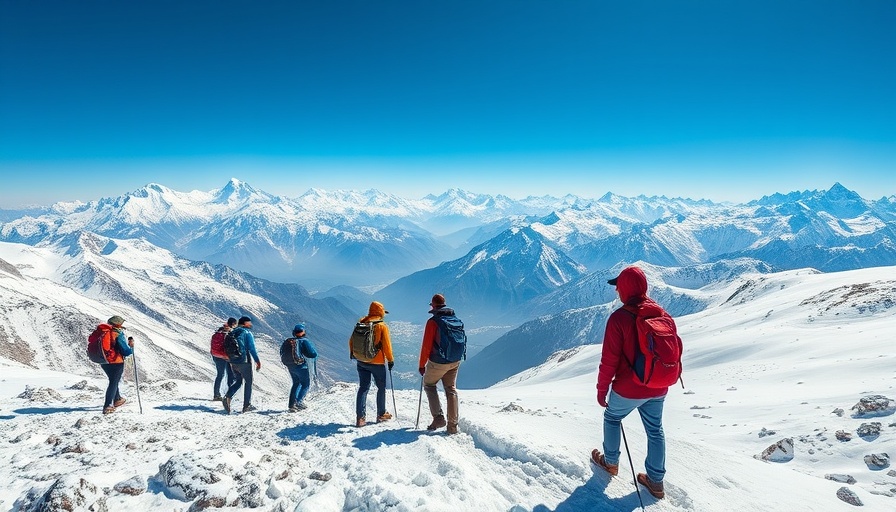
Understanding Undertourism: A Growing Global Concern
As we navigate the complexities of travel and tourism, a lesser-known yet significant concept is emerging: undertourism. Unlike its more widely recognized counterpart, overtourism, which plagues iconic destinations with excessive visitors, undertourism reflects the stark reality faced by remote and often vulnerable locations struggling to attract enough visitors to sustain their tourism-dependent economies. This phenomenon is raising alarms among conservationists, local businesses, and travelers who deeply value authentic experiences.
Why Undertourism Matters
Key players in the tourism sector, like Chris Kittishinnakuppe of VHG Hospitality Asia, highlight that undertourism isn't merely an inconvenience; it's a challenge that threatens essential services—particularly in areas that depend on visitor contributions to fund conservation efforts and community support. For instance, at Cardamom Tented Camp in Cambodia, fewer visitors translate into diminished financial support for vital projects aimed at protecting rainforests and employing former poachers as wildlife rangers. It's a cycle where decreased tourism impacts conservation operations, community livelihoods, and cultural exchanges.
Finding Value Amidst Challenges
However, those like Kittishinnakuppe view undertourism as an opportunity for niche markets like eco-conscious travelers and birdwatchers. These travelers not only seek unique experiences but also contribute meaningfully to local conservation efforts. At Cardamom Tented Camp, visitors can enjoy private access to trails, interact with conservation rangers, and understand their impact on preserving biodiversity. By tailoring efforts to attract visitors who appreciate the value of their stay, rural destinations can find hope amidst the struggles of undertourism.
The Social Justice Aspects of Undertourism
While overtourism has been spotlighted as an issue of socio-cultural significance, undertourism deserves equal attention for its influence on regional economic disparities. Jim Butcher from Canterbury Christ Church University urges a deeper examination into the cultural effects of this phenomenon. When communities are deprived of tourism income, cultural practices, local traditions, and even social structures begin to erode, highlighting a pressing need for balanced tourism solutions.
Practical Tips for Sustainable Travel
As travelers become more conscious about their impact, several strategies can enhance the experience while benefiting the destinations. First, consider planning your travel to off-the-beaten-path locations that can gain from your visit. Investigate the local culture and support businesses that focus on sustainability and community welfare. Engage in activities that contribute directly to the preservation of nature—opt for guided eco-tours, participate in conservation efforts, or spend your dollars in locally operated establishments.
Future Trends in Sustainable Travel
Looking forward, we can predict that the tourism landscape will shift towards a sustainable model. Travelers are becoming more aware of their choices and their impact on the environments and societies they visit. As a result, there could be a rise in volunteer tourism—where people seek opportunities to contribute positively to the local community during their travels. By doing so, they not only satisfy their wanderlust but also foster deeper connections and understanding of the treasures each unique locale possesses.
Conclusion: A Call for Conscious Travel
In an era where travel is increasingly scrutinized for its environmental and social footprints, understanding undertourism is crucial for all. The effects of low visitor numbers are multifaceted, impacting not just the economy, but also the well-being of ecosystems and communities. Prioritize seeking those rare destinations that celebrate sustainability. As enthusiasts of ethical travel, we can ensure that our actions help support the valued local cultures and protect endangered environments. Let’s engage in meaningful tourism that benefits both ourselves and the places we cherish.
 Add Row
Add Row  Add
Add 




Write A Comment